“I’ve made the podium dozens of times as a vegan ultra runner – here’s why I think plants and performance go hand in hand”
We speak to vegan ultra runner Harry Jones about how he fuels his long distance races on plants
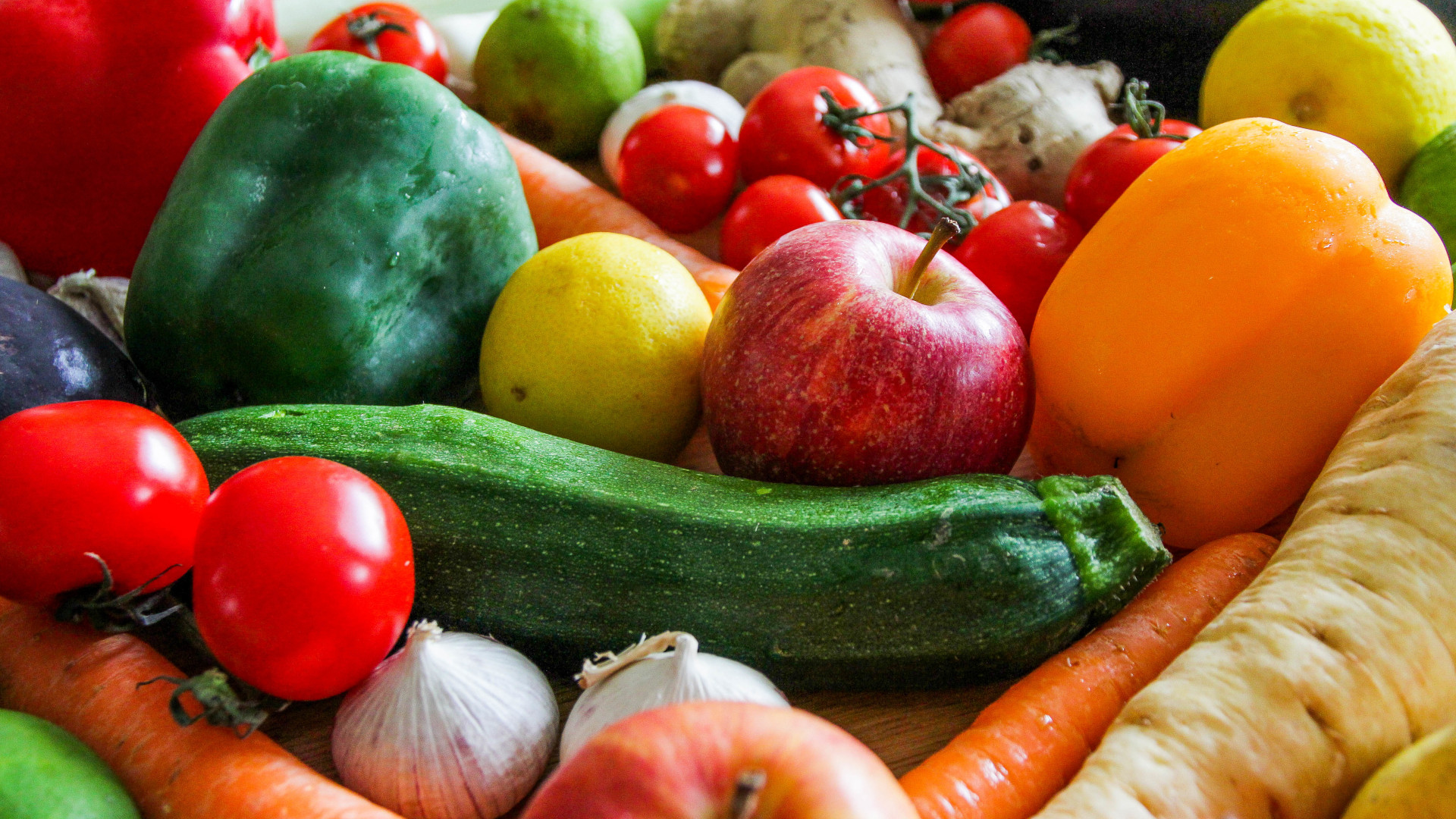
Are you an endurance athlete curious about veganism? Here's a little story for you.
In 2013, Merrell Athlete Harry Jones moved to Thailand where he discovered a love for trail running around the mountains of Chiang Mai. At the same time, after years as a vegetarian, he became fully vegan, eschewing dairy and eggs for a whole food, plant-based diet.
What followed wasn’t a period of energetic deficit and performance decline. Instead, the athlete started winning races in his trail running shoes. Long ones. There was a 100km race in Pong Yaeng, Thailand in 2016 followed by two 100km wins in Thailand in Hong Kong the following year. Over the past decade, the 35-year-old has chalked up nearly 20 podium wins and made team GB in 2022, all on plant-based fuelling.
Though Jones is quick to clarify that he doesn’t have a soapbox to stand on when it comes to his choice (“I'm quite comfortable with the decision I've made, but I never want to push it on other people”) he was happy to sit down and chat with us at Advnture about his own journey with ultra running and veganism, and offer some tips and advice for those of you who are considering switching to plants.
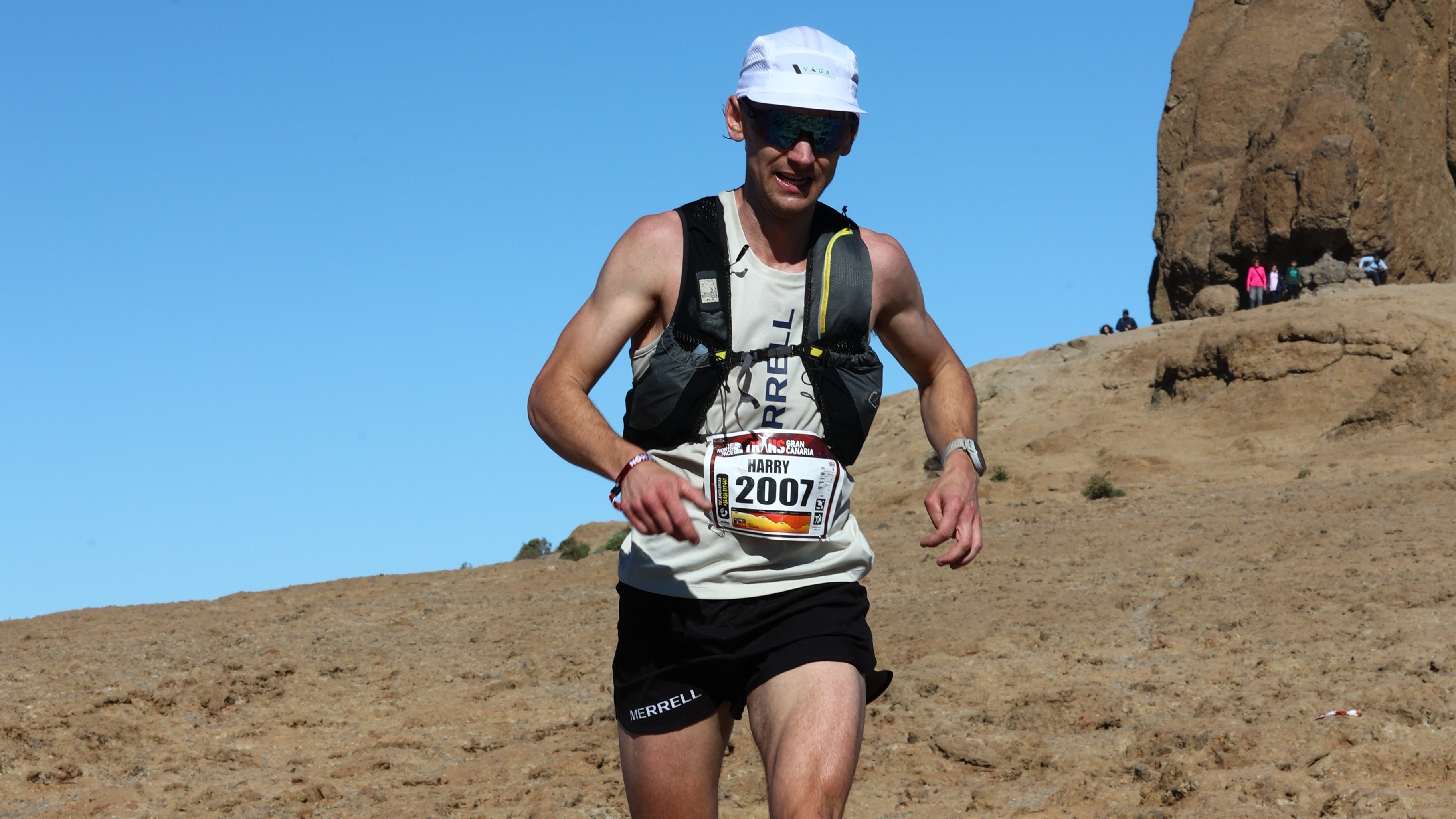
1. It doesn’t have to affect your performance
If Jones’ tale is anything to go by, it’s possible to remove meat and dairy from your diet and still run long distances and he’s not the only vegan ultra runner out there by a long shot. American ultra running legend Scott Jurek is probably one of the best-known vegan ultra runners, having won the Hardrock 100, the Badwater Ultramarathon (twice), and the Western States 100 all on a vegan diet.
“Some people might feel like it would hinder your performance, perhaps, and I think that just stems from long-held beliefs before people really understood it all and before there was enough examples of people doing it, who were successful,” muses Jones.
Outside of ultra running, there are plenty of world-class athletes proving that plants and performance can go hand-in-hand: the NFL’s Cam Newton, the NBA’s Chris Paul and tennis legends Venus Williams and Novak Djokovic are just a few names who don’t seem to be hindered by the prevailing belief that a vegan diet cannot provide enough protein.
Advnture Newsletter
All the latest inspiration, tips and guides to help you plan your next Advnture!
“I've never really stressed about the protein side of it mainly because I'm a runner. I'm not trying to build massive muscles. Obviously, there's a lot of muscle damage that goes on with these ultras when you’re running for twelve or 24 hours but I've never found recovery to be a problem,” says Jones, who points to the fact that even gym-goers often reach for a vegan protein supplement like a shake that uses pea or whey protein.
“There’s nothing that's a barrier really, for anyone, especially these days. It’s so easy. I think the knowledge is out there, it’s completely doable.”
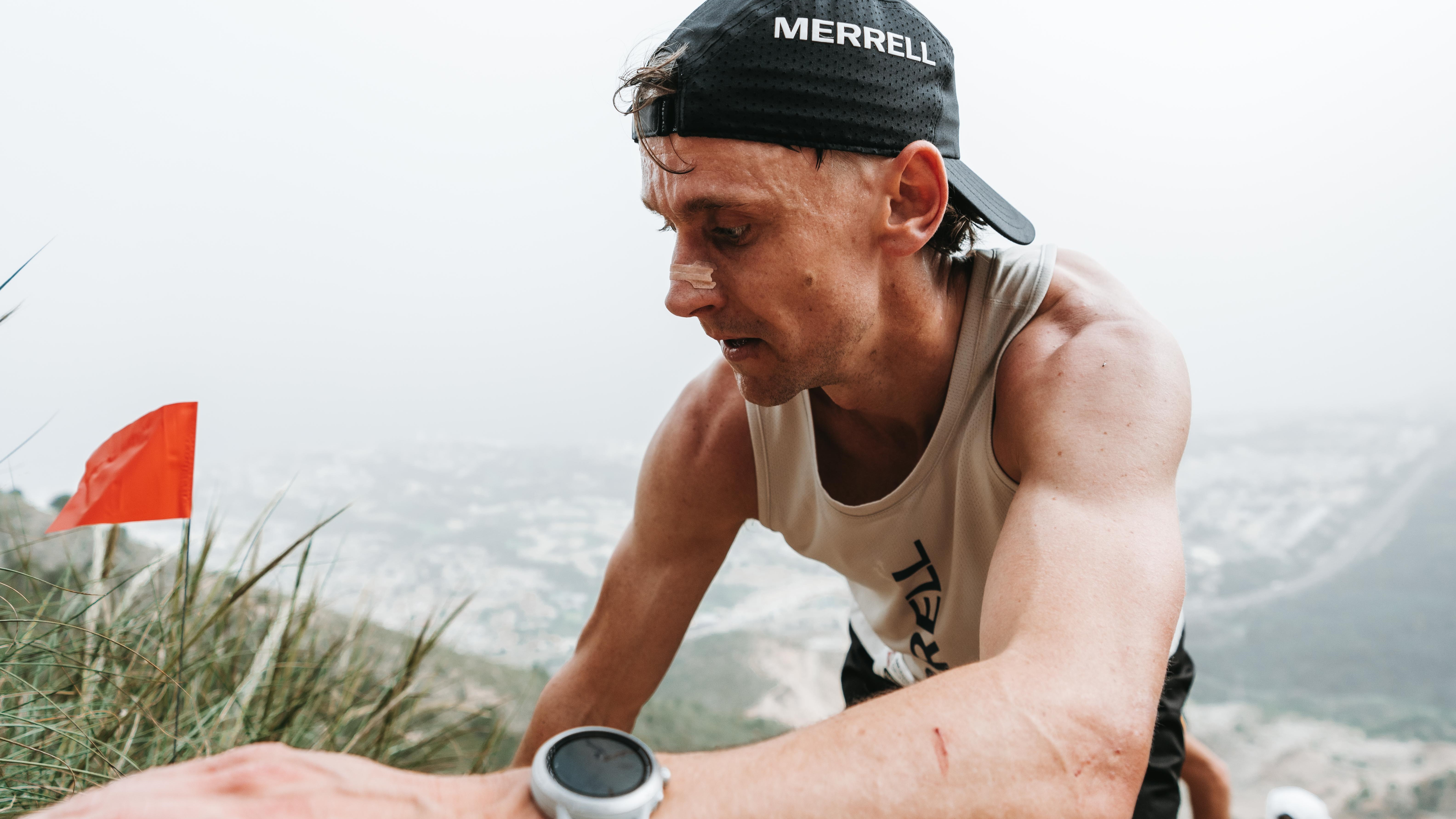
2. You can have plenty of energy to train
One of the biggest concerns among athletes pondering veganism is whether or not they’ll have enough energy without meat, and it’s an area where Jones says he’s never experienced any issues.
“From a physical standpoint, my energy is always really good. I'm always ready to train, to play with my toddler and my recovery from racing has always been pretty good. So there's seemingly no downside for myself and it seems to be a win-win.”
Those of us with young children shiver at the thought of sleepless nights on not enough calories, but Jones describes it as merely “extra training.” It didn’t keep him from the podium this spring at the tough 50km Ultra-Trail Snowdonia by UTMB.
There are however some adjustments to be made. Primarily, he says, when he first went fully vegan, the first lesson he learned was that he had to eat a lot more.
“If you aren’t having meat or cheese, they're all very dense calorie foods so if you're suddenly cutting out all these major sources of fats, you need to make sure you get it from elsewhere.”
That elsewhere, for Jones, meant a lot more peanut butter, nuts and seeds and avocado, and, well, just more of everything.
“Just eat more volume to make sure that you're never gonna get hungry. That's always my number one rule. And make sure you get those healthy fats from elsewhere.”
As for using supplements, Jones says the only one he takes consistently is vitamin B12, which helps your body make red and white blood cells and platelets and is largely found in non-vegan sources of food, like meat and dairy.
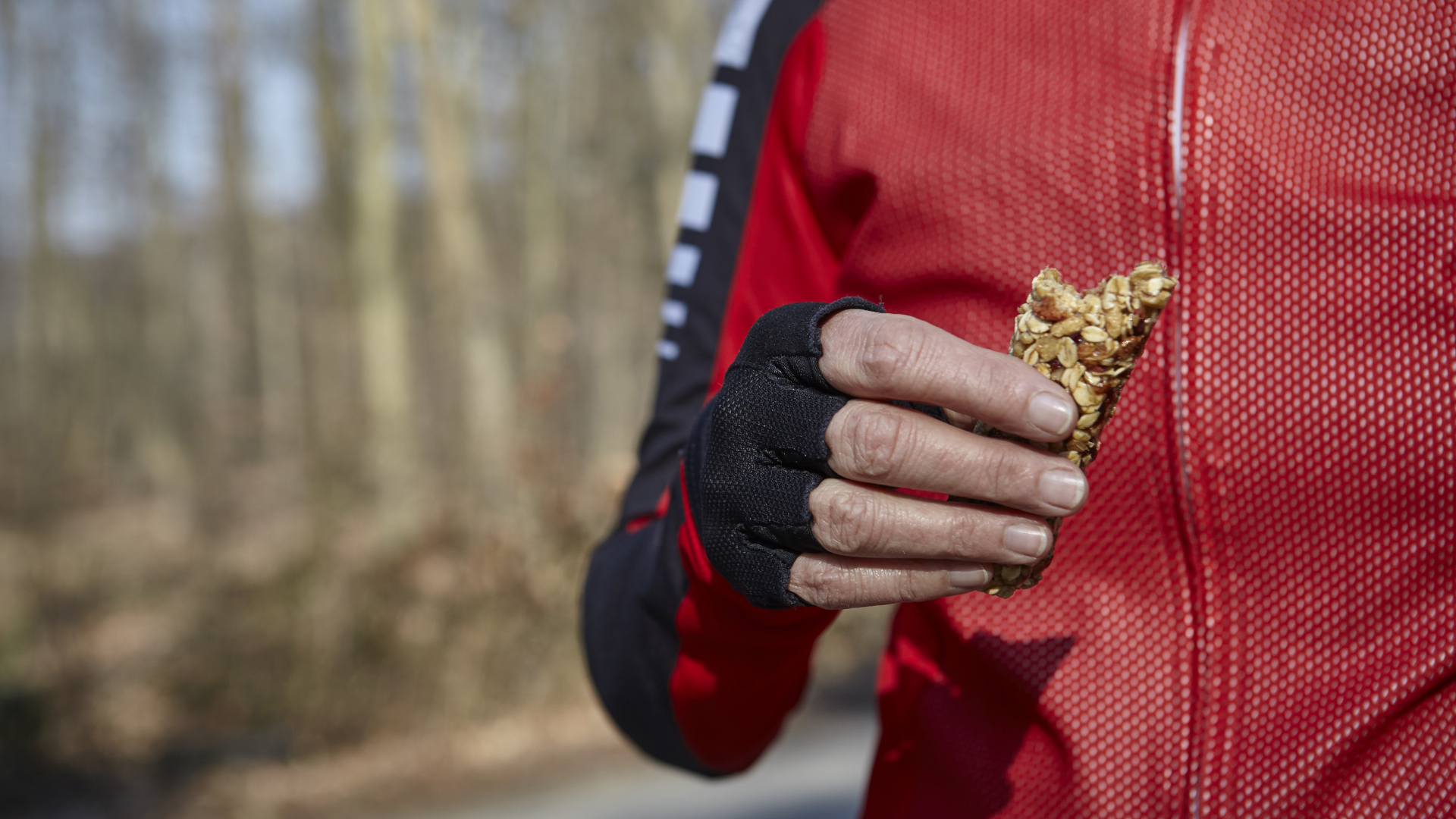
3. It can be great for your conscience
You may have noticed that, just like rock climbers, veganism isn’t exactly uncommon among trail runners. The reason for this, Harris speculates, is pretty simple: those of us who love the trail love the outdoors and when you spend time in nature, you can’t help but start caring about it.
“I think there's probably overlapping values of people spending a lot of time in these amazing, beautiful places, and then starting to really think about their connection with the world as a whole.”
Obviously, veganism isn’t the only way to reduce your footprint – you can think about if and how you travel to races, where you spend your money and be conscientious about maintaining and recycling your used gear – but for Jones, it’s a straightforward way to show respect and care for the planet.
“No one's perfect. We're all obviously gonna have a footprint on this planet, but it’s an aspect that you can control quite easily. And it's only ever made me feel good,” says Jones, who says he also chooses vegan-friendly footwear and gear (he’s currently racing in the Merrell Agility Peak 5 and the Merrell Matryx Long Sky 2 Matryx if you’re wondering).
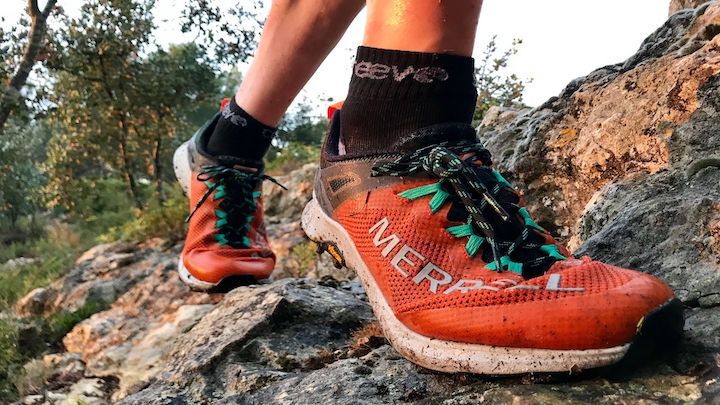
4. It doesn’t have to be complicated
If you’re not accustomed to preparing plant-based meals and you’re worried about getting enough nutrition, you might think there’s going to be a steep learning curve and you’re suddenly going to have to hollow out extra hours in the day to make sure you get what you need. Not so, says Jones, who says his training and race day fuelling is the same as everyone else’s.
“When I'm training, in terms of long runs or sessions, a lot of the foods I’m consuming are very similar to everyone else,” says Jones, who uses the same sports drinks and running gels as you, since these are usually vegan anyway.
“It's essentially just sugar in different forms.”
He makes a point to eat a lot of fresh fruit to gain plenty of minerals, but other than that his daily diet doesn’t sound too foreign: oatmeal with almond milk and peanut butter for breakfast, wraps with avocado and chickpeas for lunch and dishes like baked potatoes and vegetable curries for dinner.
“It's mostly, I guess, just standard meals that everyone would have. You're just taking the meat out or the dairy, and throwing in some beans and lentils and tofu.”
“None of it's complicated. I don't have time to make it complicated or fancy,” says Jones, who’s currently fuelling up for the 100km CCC race at the UTMB at the end of August and needs to squeeze in a 50km before then as a “tune up.”
If you’re vegan-curious but accustomed to a straight meat and potatoes diet and all this really does sound complicated? Jones suggests going vegan one or two days a week to ease in and see how it feels.
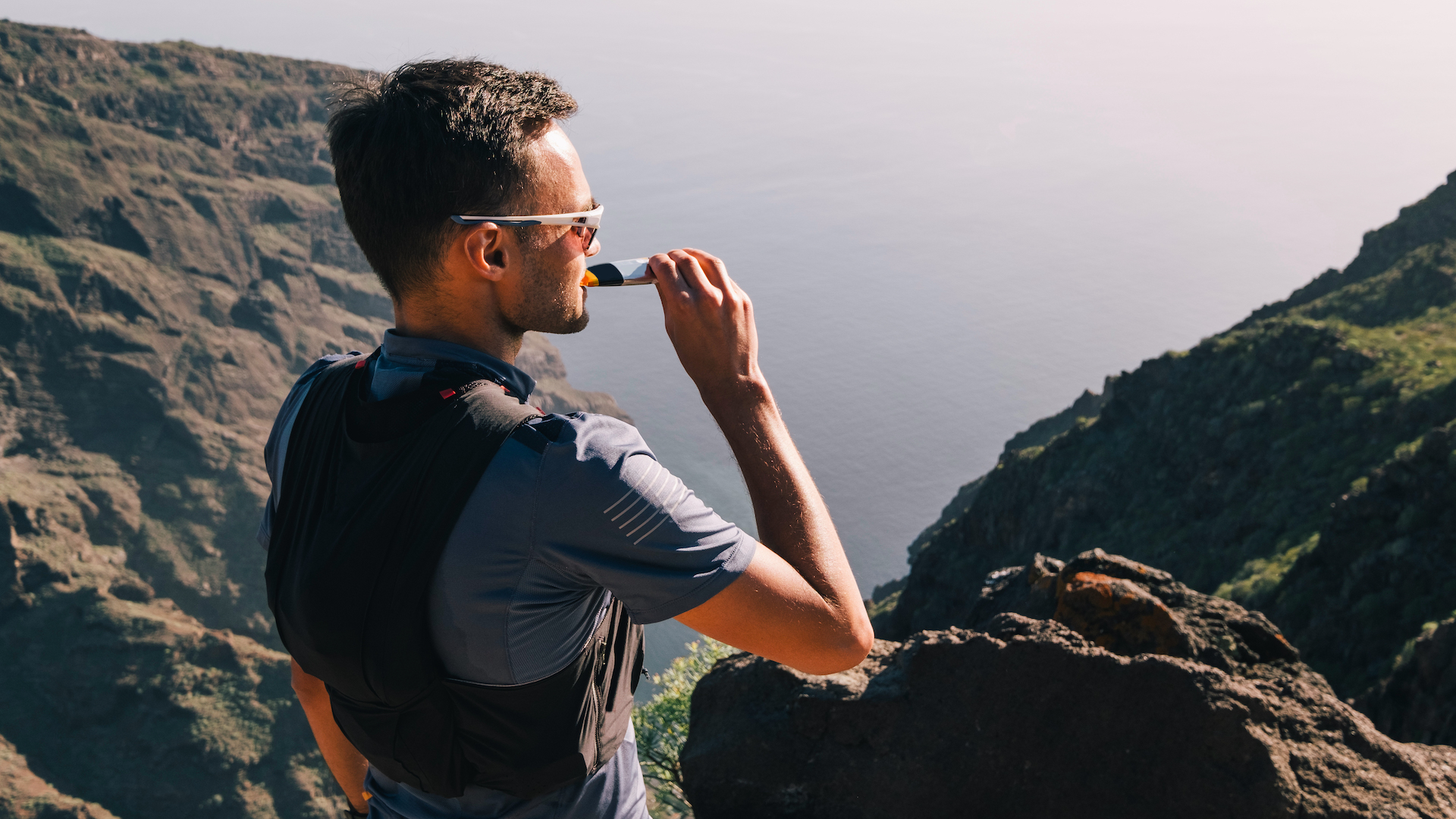
5. It opens up a whole new world of food
“I think a lot of people feel like if you're going down the vegan route, it's almost narrowing your world of what you can eat,” says Jones.
After all, if you go vegan you are saying goodbye to bacon, burgers, cheese and omelets, just to name a few things. However, Jones found that the shift made him get more creative in the kitchen.
“I felt like it kind of opened up my eyes to all these different ways that you can eat, all these different meals, as well as cultures that naturally are perhaps almost vegan. It’s showed me that there's so many more different foods in the world than if you just stay with your meat and potatoes.”
And if you want to stick with good old meat and potatoes? You won’t get any argument from Jones.
“So there's never any judgment from me, obviously people can do as they wish. And for a long time, I did eat meat.”
Julia Clarke is a staff writer for Advnture.com and the author of the book Restorative Yoga for Beginners. She loves to explore mountains on foot, bike, skis and belay and then recover on the the yoga mat. Julia graduated with a degree in journalism in 2004 and spent eight years working as a radio presenter in Kansas City, Vermont, Boston and New York City before discovering the joys of the Rocky Mountains. She then detoured west to Colorado and enjoyed 11 years teaching yoga in Vail before returning to her hometown of Glasgow, Scotland in 2020 to focus on family and writing.

